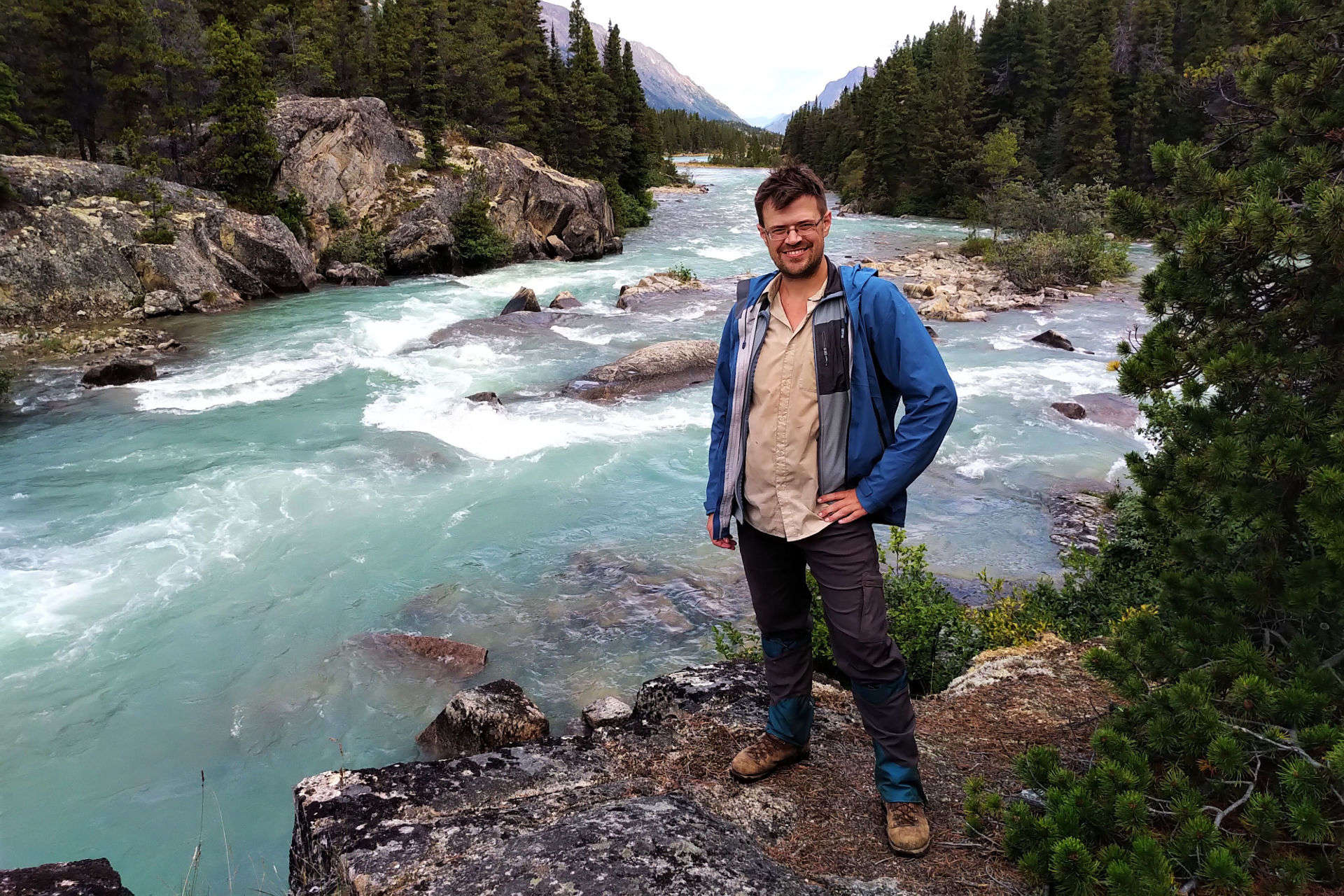Happy Dominion Day! Checked out your elbows lately? How are they doing? Are they still up? Have they been bruised and nicked by powerful blows given and sustained in the name of making Canada strong?
It’s easy, and to a point wise, to be sarcastic. We all know that Canadian governments are not serious about Canadian independence, notwithstanding the fact that may be less unserious about it than they have been in sixty years. However, you and me, the humble private sector, are not the government. Combined we spend more money than the government does, and if you and I adjust our buying decisions, it makes a difference. We live in a market of cheap imports and all know there’s often no choice. But we can do something, and thirty million somethings add up to rather a lot.
Too few things are by Canadians in Canada now. Take backpacking equipment. If you wanted to buy a backpacking tent made in Canada, I am not sure where you’d start. My tent was designed in Canada but made in China by the usual suspects. We cannot buy what doesn’t exist, and should not buy from cretins regardless of nation, but if Canadians patronize good Canadian businesses, more will crop up. It’s happening in the United States, where after generations of outsourcing, cottage manufacturers of backpacking gear are gaining a real foothold in the market. Some of these manufacturers get big and start making everything overseas as soon as they can scale to it, but not all do. The comparable economy in Canada is even smaller than population would suggest, but it exists, and we can support it.
Disclaimer: I am not always as good as my word here, any more than anyone else. I consider made in the USA by Americans a not-bad second to made in Canada by Canadians, and sometimes buy accordingly. This is a guide with the best knowledge I have. Suggestions and first-hand experiences are encouraged.
Further disclaimer: absolutely none of these links are affiliate links, and if you buy any item linked from this page the author receives no commission of any kind.
Places from which to buy things
All these sell a great deal of non-Canadian-made merchandise, but will sell Canadian as well, and even when they don’t it’s at least passing through Canadian hands on the way and beats the hell out of Amazon.
-
For a few years, my online gear home has been Geartrade (geartrade.ca). Their business model appears simple: they import stuff at wholesale rates, often from smaller manufacturers in the United States which the common man finds it hard to acquire because of shipping, duty, and now tariffs, and sells it to you from their warehouse in Cochrane at a better price than the individual usually gets. It’s a good deal more involved than drop-shipping, although the end result is the same, and they carry many Canadian-made goods as well.
The great things about Geartrade are, first, that they sell a lot of honest stuff made by honest folks in Canada and the United States. Second, they do customer service, as I can relate first-hand. I bought a backpacking quilt from them and turned out to be a fairly awful customer. The quilt was a special-order item that took more time, which I did not realize. I e-mailed them seeing if a special promotional price from the manufacturer could be applied, they said it could, I bought it, being a special order it shipped out more slowly than their usual “near-instantaneously,” I e-mailed again, they not only explained the situation to me but they updated their product list to make it clearer so that nobody could repeat my mistake. I call that service, and recommend them unreservedly.
Special orders aside they ship quick, they believe in their gear, they support the little guy (American or Canadian), they have a great selection of hard-to-come-by items, and they seem like nice, honest, ordinary people. It’s a pleasure to do business with them. If I need something not made in Canada, I go to Geartrade first, and if I am just generally browsing, Geartrade is where I do it.
-
In a smaller version of the same concept, Hofman Outdoor Gear Supply (hofmanoutdoorgearsupply.ca) out of Portage-la-Prairie sold me a pair of beautiful CNOC Vecto water bags at a time when they were hard to come by in Canada. They are mostly too specialized to draw my eye, but the specialist who likes what they offer will like it a lot. They are a great source of hammock-hanging gear as well as fabric and insulation for the aspiring do-it-yourself expert, and while I won’t pretend those categories include me, they includes several. Plus those CNOC water bags are the bees’ knees, and you can get them on Amazon now but why should you?
-
It gives me great pleasure to put the Mountain Equipment Company (mec.ca) on this list. As you must know if you’re reading this, MEC was born as a co-op, spent many years as a fake co-op that somehow managed to leverage huge brand recognition, a great real estate portfolio, and the largest outdoor boom in Canadian history into going broke, was bought out by an American hedge fund, bounced cheques to suppliers, and has now been bought out by a Canadian-based consortium. It’s progress.
Anyway, it’s a place the Canadian patriot can once again shop with a reasonably clear conscience. It has always been good about stocking Canadian brands, but now they’re promoting them, and even a few of the MEC-branded items are again made in Canada. About time.
-
Those in British Columbia owe themselves a visit to Valhalla Pure Outfitters (vpo.ca). A great big general outdoor store with all your essentials in an amiable crowded here-to-sell-things-to-outdoorsfolk context that’s agreeably short on athleisure and lifestyle brands. They don’t do a lot of trade in Canadian-made goods, but it’s a great store and everyone needs gas and socks sometimes.
Backpacks and bags
-
I wish that I had more money to give to Terrain UL (terrainul.ca). As their name implies, they focus on the ultralight hiker, which I’m really not. Their trademark Free Range backpack, with a capacity of 39 litres, is just too small for me to use backpacking. However, certainly backpacks in that size are becoming more popular, as their growing lead times happily suggest, and they have many other wonderful things anyone will find use for. If you’re looking to carry the mostest with the leastest, their DCF storage bags are highly recommended by me. Since they make everything themselves, they don’t always have what you need in stock when you think to need it, but keep an eye open; it’s worth the patience.
I can’t resist overpromising on their customer service, too. I was in the market for a good solid bear hanging solution, and by “good” I mean “aligning with what I already wanted to do.” I e-mailed asking if their rock throw bag could fit all the cord and carabiners I wanted to shove into it. She ran the numbers and said probably not, but she had enough DCF on hand to do a custom job if I wanted it. I did, and I would be ashamed to say how moderate the cost was. It came promptly and was perfect. The joy of dealing with our fellows.
-
ADOTEC Outdoor Gear (adotecgear.com) is trying their damndest to innovate in a very crowded market. Their website has a panoply of outdoor products, and some of it will surely appeal to everyone, but their big item is their DCF bear-proof food bag. The 14-litre version is certified by the IGBC, meaning you can bring it into most backcountry areas without permanent bear protection. The DCF is so thick to resist bear attack that it’s only a bit lighter than the equivalent Ursack XL, at a bit of a price premium, but it’s short and flat compared to an Ursack’s thin and tall, meaning it fits more nicely into most long-duration backpacks (including mine). Plus, the big broad cord is just nicer to use. They seem to have a winner there, and certainly I’m very happy with mine.
And heck, why not another customer service story? I bought one of their DCF draw-string bags. How I used it was stuffing it beyond absolutely full of clothes, then smashing my head into it every night as a pillow; harsh use, to be sure, and I blew out the seam on the bottom. I sent them an e-mail, more to let them know than anything, because I was very clear in my message that I had been using it off-label and considered the failure my own fault. They sent me a complementary repair kit anyway. I liked that. I then lost the bag in the pub on Saturna Island, but that was even more hardly their problem.
-
I haven’t yet had the chance to try Nelson, BC’s Northern Ultralight (northernultralight.com), but they might sell my next backpack. Their Sundown looks like it combines a good, common-sense design, light weight, good materials, and some interesting ideas, at a more-than-fair price for a premium backpack. I use the shock cord over the front pouch of my backpack to store things like gaiters that are light but bulky and not suitable for the inside of my pack; their smaller side shock cord spaces might get in the way of grabbing water bottles but might also be less snag-y. All their accessories look well thought-through too; I can readily believe these are made for use, not just for lifestyle, and would encourage the curious to check them out.
Quilts and down apparel
-
I regret that I have no first-hand experience with any of the gear in this category. Done right, down sleeping bags are a once-in-a-lifetime buy and I have mine. I needed a quilt recently but quilts are tricky things: some people swear by them, some people hate them, and when I bought my first backpacking quilt I have to tell you I went with a well-known and well-reviewed American brand because I decided that if I hated it, I wanted to hate it because I hated quilts, not because I bought the wrong one.
However, so far I like quilts quite a lot, and if I were to buy another the first place I’d go would be Mount Trail (mounttrail.com). Mount Trail is a Quebec company, or it might be more accurate to say Mount Trail is a guy in Quebec, who is not very good at web design and only a bit better at English, but whose quilts appear compelling. The large horizontal-baffled quilts look like good common-sense and light-weight approaches to getting the most insulation into the least mass, which is what a quilt is all about. What makes it great, however, is the almost ludicrous level of customization available; it would be tough to make it your first quilt, but hard to argue against it for your second, when you know what you want and how you want it, and being made in Canada the prices for that highly-customized kit are positively reasonable while the tech specs are all you could wish. Again, no first-hand experience, but signs seem good and I’d love to hear from a customer.
-
For a long time Vancouver’s Taiga Works (taigaworks.com) has been top of the list when you need a bomber sleeping bag, fleece, or down coat that will stand up to daily abuse. Not for them, the gram-counting of weenies: they know what they want to make, they make the hell out of it, and enough people have liked it to keep them in business for decades. I regret to say that I am a gram weenie when it comes to down jackets, items that I basically wear just to be comfortable in camp and therefore want as light and simple as I can get away with. They do not concern themselves with fads, and are probably the all-time leader in products that I almost got. However, their prices are reasonable, their workmanship has the highest reputation, they are concerned more with robust performance than pure efficiency, and that describes a hell of a lot of backpackers. If you are that kind of backpacker, if you want something economical that you can count on rather than something super specific, they are your company without a doubt.
-
If you do want something super-specific go to another legend of the Canadian West, Kluane Mountaineering (kluanemountaineering.com) of Edmonton. They do one thing, which is warmth, and they do it well. For fifty years they’ve been making down jackets and sleeping bags, custom made to order, and their bomber designs have recommended them whereever warmth and durability are the top concerns. Custom ain’t cheap, but custom is right, and while you have to jump through a hoop or two to get your jacket or your sleeping bag made, it’s all so it can be exactly the one that’s right for you. They even offer a selection of fasteners, rare these days, and by itself a recommendation to zipper-haters everywhere.
Apparel
-
This is the feeblest category. Many major outdoor brands you’ve heard of started in Canada and all started manufacturing overseas as soon as they could get away with it, or sooner. Please suggest more.
But no list would be complete without including venerable Stanfield’s (stanfields.com). Founded in the colony of Prince Edward Island in 1856, prominent underwear supplier to the stampeders of the Klondike, Canadian longer than there’s been a Canada. Not everything they sell is made in the Dominion, so check the product pages, but most of it is. Nor is everything they sell from their vast general assortment useful to the hiker, but a surprising amount is too, and at reasonable prices. Call it a place for fundamentals, which everyone needs.
-
The qualities of merino wool appeal to a lot of backpackers. Quick-drying, stank-resistant, with versatile warmth; merino and merino blends have been a the premium choice for outdoor base layers for a long time. And though Simply Merino (simplymerino.ca) does not aim at the backpacking market, there aren’t many backpackers who wouldn’t like a quality-made merino crew-neck t-shirt or sweater in their quiver.
The chief trouble of merino for backpacking is its durability; beneath the chafe of a backpack’s straps, it is likely to pill and get holes worn in it sooner rather than later. This seems very individual, though, not just on the type of top but on the type of person, how naturally your build, gait, and hiking style lends to a consistently stable backpack. It is anyway tremendously comfortable, warm for its weight, and holds up to all the other rigours of outdoor life wonderfully. It’s a cozy way to keep warm in camp or in the tent, and lovely for a lot of people.
Food (glorious food)
-
I have mentioned that I prefer to make my own backpacking meals rather than buy the pre-packaged ones; it saves space, it saves money, it customizes my meals to my needs. This means buying #10 cans full of dehydrated miscellany, and right now, the best Canadian source for those is Briden Solutions (bridensolutions.ca). They have long catered to the survivalist market, but the needs of the survivalist and the needs of the backpacker really overlap, so while they now carry a good assortment of the freeze-dried-meals-in-pouches many backpackers are used to, it’s the big cans of stuff that are the real winners. They’ve been in business for a while and their prices are good.
-
There are also more and more Canadian companies making backpacking food themselves and I can recommend a couple personally. Hornby Organic (hornbyorganic.com) has been my go-to for snack bars for about five years. Their bars are soft, lasting, filling, and delicious, in a solid variety of savory flavours. They are also widely-distributed in British Columbia, including at the most ordinary chain grocery stores, which does nobody any harm. Really not much else to say about them; easy-to-get, easy-to-enjoy, and hard to beat for the granoly portion of your day’s hiking snack.
-
GORP (gorpworld.com) bars aren’t in my grocery stores so I don’t eat them as much. They’re made in Winnipeg, and that’s so very far away from here after all. However, I’ve eaten many of them too, and they are also delicious. Bit firmer than the Hornby bars, but just as filling and long-lasting. Also solid backpacking fuel, filling and high in protein, and what’s wrong with having more than one source? Variety is important.
-
When it comes to freeze-dried meals, the only Canadian brand I have personally tried is Nomad Nutrition (nomadnutrition.co). They specialize in vegan backpacking meals, and there are plenty of vegans out there who might be tiring of the unadorned pasta-and-granola diet and be excited by a variety of curries, borschts, and other interesting high-protein all-plant options. I am not a vegan, and my primary takeaway trying their meals was “this would be a lot better with some chunks of pepperoni in it.” However, for what they were, they were good, and they certainly filled the hunger hole.
-
Happy Yak (happyyak.ca) is probably the most prominent Canadian dehydrated meal company. I never got a chance to try much of their stuff myself, but I almost don’t feel bad because their variety is astonishing. Cook-in-the-bag meals, meals to simmer in your pot, vegetarian, meaty, breakfasts, dinners, they have definitely gone for variety, and while that means you have to keep your eyes open when buying (pro tip: get Happy Yak Express if you want to cook in the bag), they’ve got a sterling reputation.
-
Since I stopped carrying pre-packaged meals a number of other Canadian brands have come into the limelight. The most interesting to me is Flat Out Feasts (flatoutfeasts.ca), started by an Edmonton woman who struggled through the Pacific Crest Trail with type 1 diabetes and went into business making low- and no-carb dehydrated backpacking meals. Going keto on the trail has a mixed reputation: there are reports of people “bonking” a few days into heavy exertion, and also other people who say they’ve been just fine thank you. However, in general, most backpacking meals are lower on protein than makes for long-term comfort, and having a few high-protein dinners in the bag seems like a very good idea to me.
Plus, the food looks really good. Casseroles and cauliflower pastas and turnip shepherd’s pie, very unusual things to eat on the trail and delightful-looking changes of pace. They come very highly reviewed, and if I were to grab some dehydrated meals again, this is definitely where I would start.
Maps and guidebooks
-
Honestly, there are too many to list. The nice thing about hiking Canadian trails is that odds are when you buy the guidebook it’s written by a Canadian and published by a Canadian company, so the best advice is to hike Canadian and let it sort itself out.
However, Gemtrek Maps (gemtrek.com) deserves special mention. Published by Summerthought Publishing, the same Canadian outfit that brings you the venerable Canadian Rockies Trail Guide, Gemtrek maps cover much of the same ground in the Canadian Rockies as the better-known American National Geographic maps. But when a Gemtrek map exists it is always, always, always the better one. It has more information, more on-the-ground detail, and tends to be at a nicer scale. Always hike with Gemtrek in your pocket when you can.
-
Also worth a shoutout is Trail Ventures BC (trailventuresbc.com). They publish all sorts of great maps for the British Columbia Lower Mainland and interior, from destinations as commonplace as the Vancouver North Shore to ones as esoteric as the hinterlands of the Stein Valley. They also publish what I believe is the only hiking map of Kluane National Park, a destination in the Yukon well worth the trouble to visit.



